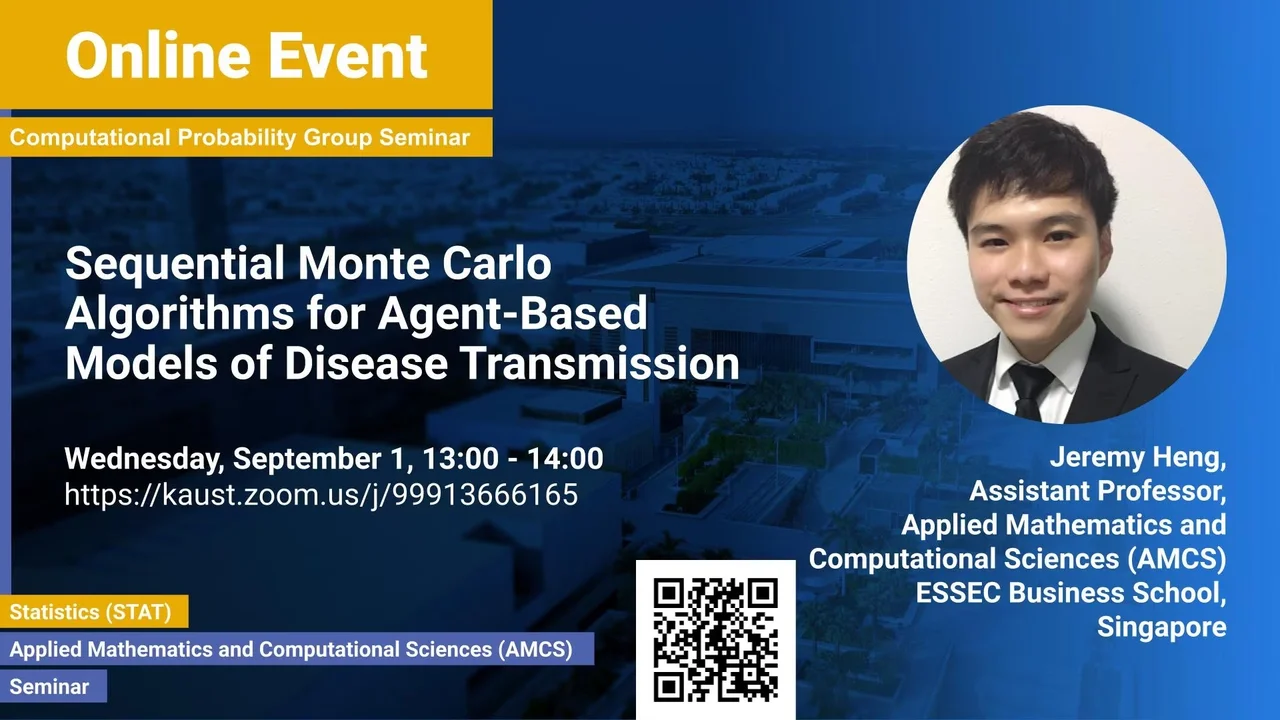
Sequential Monte Carlo Algorithms for Agent-Based Models of Disease Transmission
- Jeremy Heng, Applied Mathematics and Computational Sciences (AMCS), ESSEC Business School, Singapore
KAUST
We consider statistical inference for a class of agent-based SIS and SIR models. In these models, agents infect one another according to random contacts made over a social network, with an infection rate that depends on individual attributes. Infected agents might recover according to another random mechanism that also depends on individual attributes, and observations might involve occasional noisy measurements of the number of infected agents. Likelihood-based inference for such models presents various computational challenges. In this talk, I will present various sequential Monte Carlo algorithms to address these challenges.
Overview
Abstract
We consider statistical inference for a class of agent-based SIS and SIR models. In these models, agents infect one another according to random contacts made over a social network, with an infection rate that depends on individual attributes. Infected agents might recover according to another random mechanism that also depends on individual attributes, and observations might involve occasional noisy measurements of the number of infected agents. Likelihood-based inference for such models presents various computational challenges. In this talk, I will present various sequential Monte Carlo algorithms to address these challenges.
Brief Biography
Jeremy Heng completed his DPhil in Statistics at the University of Oxford in 2016. He was a postdoctoral fellow in the Department of Statistics at Harvard University from 2016 to 2018, before joining ESSEC Business School on the Singapore campus as an Assistant Professor of Statistics in 2019. His research interests cover various areas of computational statistics, optimal transport and optimal control.